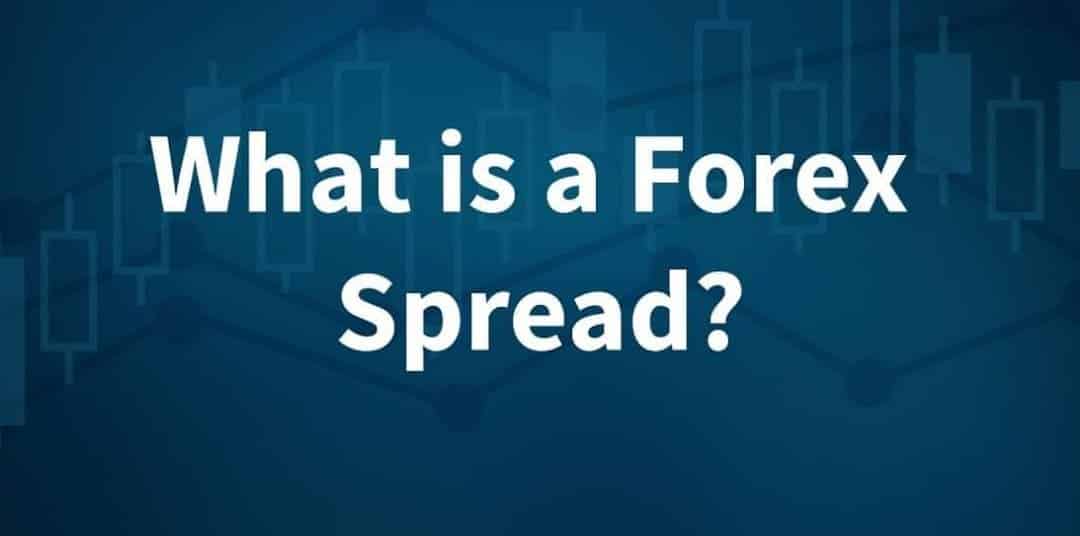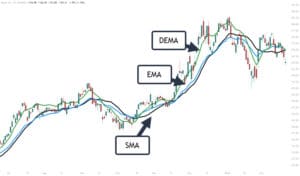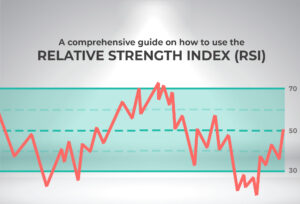For each currency pair, forex brokers will give you two separate prices: the bid and ask price. You have to understand what is a spread in forex trading.
The “bid” is the price at which the base currency can be SOLD. The “ask” is the price at which the base currency can be purchased. The spread is the difference between these two values.
Often referred to as the “bid/ask spread.”
Brokers who do not charge commissions rely on the spread to make profits.
The cost of making a deal is built into the buy and sell price of the currency pair you choose to trade, rather than being charged separately.
This makes sense from a business perspective. The broker offers service and must earn a profit in some way.
- They profit from selling the currency to you at a higher price than they paid for it.
- They even profit from purchasing currency from you at a lower price than they would get when they sell it.
- The spread is the word for this discrepancy.
It’s just like if you were trying to sell your old iPhone to a store that buys used iPhones. (A smartphone with only two rear cameras? Yuck!)
In order to make a profit, it will need to buy your iPhone at a price lower than the price it’ll sell it for.
If it can sell the iPhone for $500, the most it can purchase from you is $499 if it wants to make more money. The spread is the $1 gap.
If a broker promises “zero commissions” or “no commission,” this is deceptive since you will pay a commission even though there is no separate commission charge.
It’s just built into the bid/ask spread!
How is the Spread in Forex Trading Measured?
The spread is generally expressed in pips, which is the smallest unit of a currency pair’s price movement. One pip is equivalent to 0.0001 for most currency pairs.
1.1051/1.1053 is an example of a two-pip spread for EUR/USD.
Currency pairs involving the Japanese yen are quoted to only 2 decimal places (unless there are fractional pips, then it’s 3 decimals).
For example, USD/JPY would be 110.00/110.04. This quote indicates a spread of 4 pips.
What Types of Spreads are in Forex?
The type of spreads that you’ll see on a trading platform depends on the forex broker and how they make money.
There are two types of spreads:
- Fixed
- Variable (also known as “floating”)
Fixed spreads are typically provided by market makers or “dealing desk” brokers, while variable spreads are typically offered by “non-dealing desk” brokers.
What are Fixed Spreads in Forex?
If you know what is a spread in forex trading, then you can use it in a proper way. Set spreads to remain constant no matter what the market dynamics are at any given time. In other words, the spread is unchanged if the market is unpredictable like Kanye’s moods or quiet as a mouse. It does not alter.
Brokers that work on a market maker or “dealing desk” model provide set spreads.
The broker buys large positions from their liquidity provider(s) and sells them to traders in smaller sizes through a dealing desk.
This ensures that the broker is the counterparty to the transactions of their clients.
Having a dealing desk, allows the forex broker to offer fixed spreads because they are able to control the prices they display to their clients.
What are the Advantages of Trading With Fixed Spreads?
Fixed spreads have lower capital requirements, making them a more affordable option for traders who don’t have a large sum of money, to begin with.
Trading with fixed spreads also simplifies the method of estimating transaction costs. Since spreads never change, you still know how much you’ll pay when you start a deal.
What are the Disadvantages of Trading With Fixed Spreads?
When trading with fixed spreads, requotes are common because pricing comes from a single source (your broker).
And by regularly, we say almost as frequently as the Kardashian sisters’ Instagram updates!
There will be occasions when the forex market is highly volatile, with prices fluctuating rapidly. Since spreads are set, the broker would not be able to change the spread to market conditions. For that, you have to gather info about what is a spread in forex trading.
So if you attempt to enter a trade at a certain price, the broker will “block” the trade and ask you to accept a new price. A new price will be “re-quoted” to you.
Your trading platform will show a requote message telling you that the price has changed and asking if you are willing to accept it. It’s almost always a cheaper price than the one you asked for.
Another thing is slipping. When rates change rapidly, the broker is unable to maintain a stable fixed spread, and the final price you pay after entering a trade would be substantially different from the expected entry price.
When you swipe right on Tinder and agree to meet up with that hot gal or guy for coffee, you realize the person in front of you looks nothing like the picture.
What are Variable Spreads in Forex?
Variable spreads, as the name indicates, are always evolving. The disparity between the bid and ask prices of currency pairs is continuously changing with variable spreads.
Non-dealing desk brokers have variable spreads. Non-dealing desk brokers obtain currency pair rates from a variety of liquidity suppliers and move these prices on to traders without the involvement of a dealing desk.
This suggests that they have no leverage over the spreads. And spreads will widen or narrow depending on currency supply and demand as well as overall market volatility.
Typically, spreads expand when economic data is published, as well as other times when market liquidity is low (like during holidays and when the zombie apocalypse begins).
What are the Advantages of Trading With Variable Spreads?
Variable spreads eliminate experiencing requotes. This is because the spread takes into account price fluctuations due to market conditions. (However, just because you won’t be requested doesn’t mean you won’t slip.)
Trading forex with variable spreads often provides more straightforward pricing, particularly when you realize that you have access to multiple liquidity providers’ prices
What are the Disadvantages of Trading With Variable Spreads?
Scalpers should avoid variable spreads. The scalper’s gains would be easily eaten away by the widened spreads.
For news traders, variable spreads are just as grim. Spreads may widen to the point that what appears to be a profitable trade becomes unprofitable in the blink of an eye.
Fixed vs Variable Spreads: Which is Better?
The question of whether fixed or variable spreads are a better choice depends on the trader’s needs.
Set spreads may be preferable to variable spread brokers for certain traders. Other traders can experience the same thing.
Traders with smaller accounts and less regular trading will, on average, benefit from fixed spread pricing.
Variable spreads would also help traders with larger accounts who trade regularly during peak market hours (when spreads are tight).
Traders who want fast trade execution and don’t want to be required should use variable spreads.
Spread Costs and Calculations
Now that you know what a spread is and the two forms of spreads, there’s one more thing you need to know…
How the spread relates to actual transaction costs.
It’s pretty easy to calculate and all you need are two things: 1.The value per pip 2.The number of lots you’re trading
Let’s look at an example…You can buy EURUSD at 1.35640 and sell EURUSD at 1.35626 in the above quote. This means that if you purchased EURUSD and then immediately sold it, you would lose 1.4 pips.
You add the cost per pip by the number of lots you’re trading to get the overall cost. So, if you’re selling mini lots (10,000 units), the price per pip is $1, and your transaction cost is $1.You can buy EURUSD at 1.35640 and sell EURUSD at 1.35626 in the above quote. This means that if you purchased EURUSD and then immediately sold it, you would lose 1.4 pips. You add the cost per pip by the number of lots you’re trading to get the overall cost.
So, if you’re selling mini lots (10,000 units), the price per pip is $1, and your transaction cost is $1.
The cost of a pip is linear. This means you’ll have to add the cost per pip by the number of lots you’re working with.
When you increase the size of your place, the transaction cost, which is expressed in the spread, will also increase.
If the spread is 1.4 pips and you’re trading 5 mini lots, your trade would cost $7.00. So knowing about what is a spread in forex trading is always beneficial for you.
Let’s Have Forex Trade Copying Service From Expert Traders!
Fx Pips Guru is a forex trade copying service provider company from expert traders. Let’s do Live Chat with our experts.




